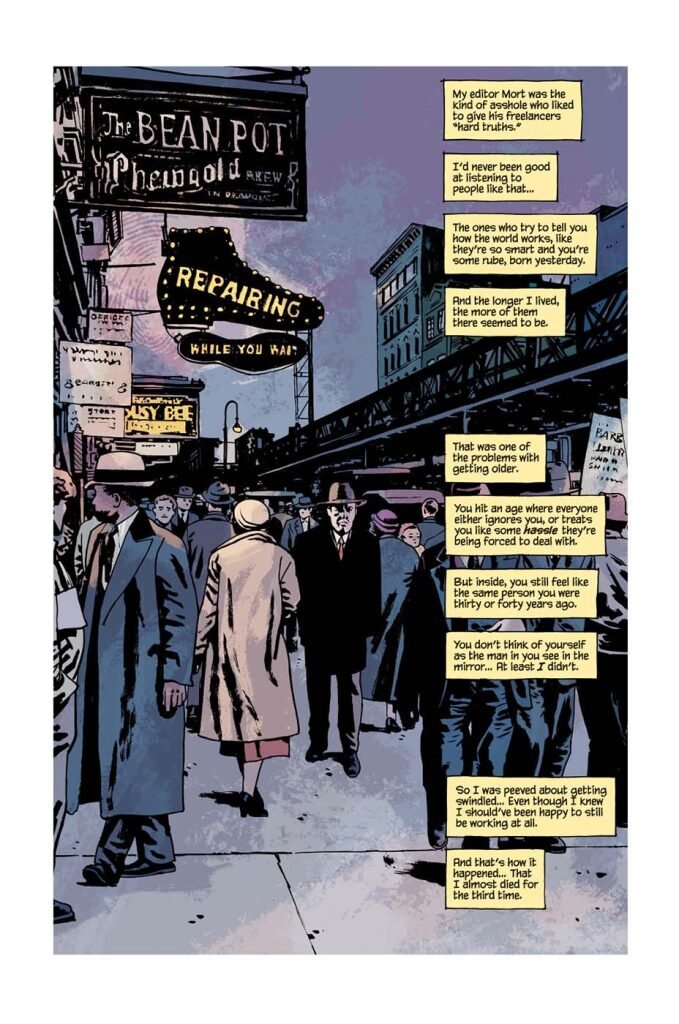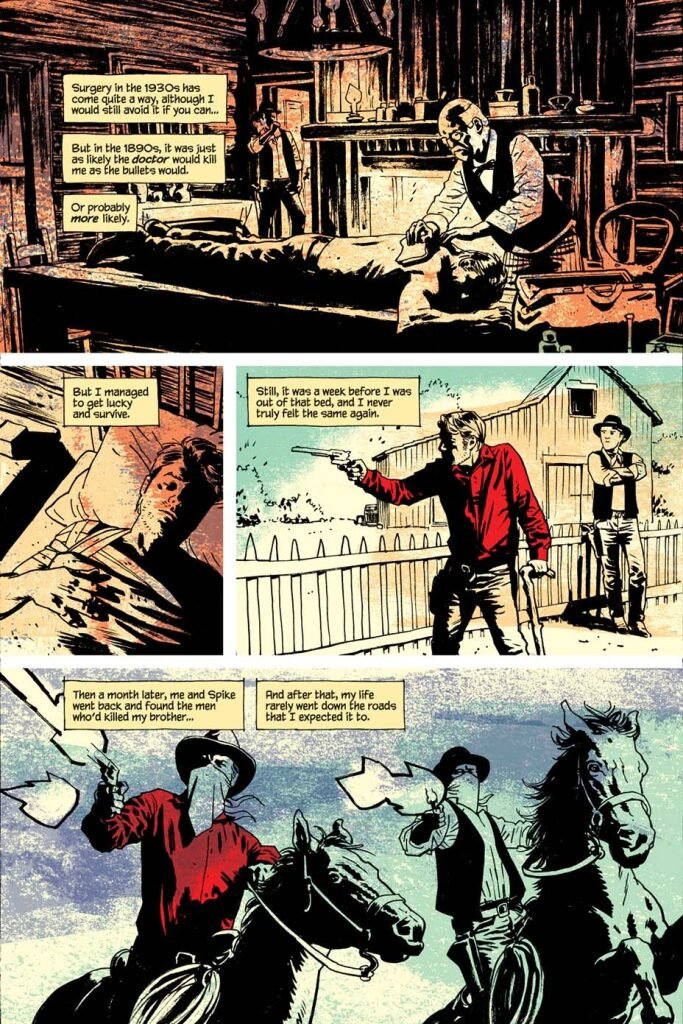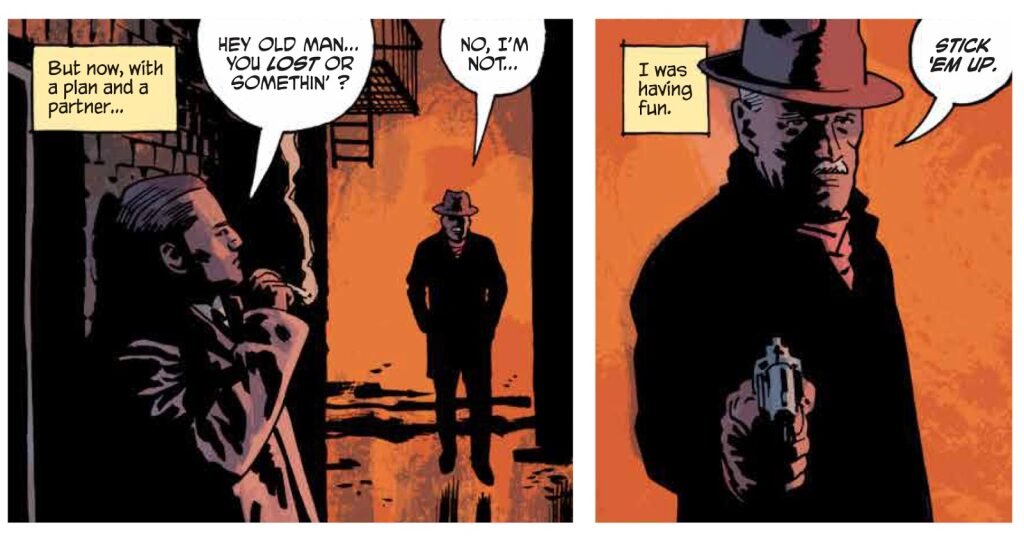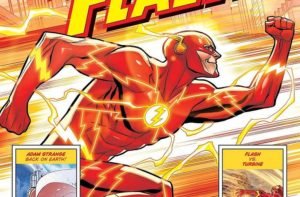Writer: Ed Brubaker
Artist: Sean Phillips
Image Comics, 2020

THE ORIGIN STORY of the Red River Kid, remembered sixty or so years later in 1939, when our hero Max writes it down in a cowboy story for a pulp magazine in New York City, peppered with his own memories, starts with a gunfight on main street in a lonely western town. Maybe it happened that way. The editor crosses out what he doesn’t like, and pays him.
This beginning in PULP, a crime-noir drama from 2020 by veteran team, writer Ed Brubaker and artist Sean Phillips, sets the time zone, back when aging cowboys still existed, like famous western sheriff Wyatt Earp, who died in Los Angeles in 1929. I picked up this slim, handsome, hardbound volume (like our hero) with some trepidation. Brubaker/Phillips together have been spitting out these crime dramas like a teletype, one unsettling view after another, all camped in real life, yet swirling with a closing menace one has to be prepared to receive.

A spell with Max in the current day after he leaves his editor exposes us to the rise of fascism in several countries, seen in newsreels from Europe, and on New York streets, at a time when an alternative to crappy democracy failing to keep everyone working and prospering looked promising to many. German culture in America was strong, and local thugs started to emulate their overseas peers, using violence to get their way. This trouble percolates close up.
Then the current scene goes black, and Max is prompted to recall the first time he almost died. We see the real origin of the Red River Kid laid out on pages made to look like a scuffed linoleum floor by artist Sean Phillips in a distinctive almost disturbing style where crisp images emerge from a washed and hazy background like the surface of a fleeing memory. Wyoming 1892, a landowner’s thugs burn down the family’s ranch house to push ‘em off, and midst furious flames and smoke, there seemed nothing to do but run.
When a cold hand slides down your spine to tell you that you are losing in a contest against a superior force, especially a force of nature, retreat can make better sense than a surge of courage. Yet there remains a whiff of what-if, a slim chance, an edge one way and the other at the switch-point, choosing to face off or flee.

On that fateful night as three riders escaped on two horses, Max’s brother riding behind him was shot dead. The next night a reborn Red River Kid with his mate went back to even the score. From that event onward, as far as we see, except for some grim years on the bottle, he never backs down again.
“Damn … You’re a bleak son of a bitch,” his current-day partner tells him. We glimpse reasons why.
The man who catches up with Max in New York was formerly a Pinkerton agent, a private law-enforcer for the railroads, who chased him across the West for his gang’s train robberies. He finds him through familiar details published in his pulp stories retelling his outlaw adventures.
Mix all of these elements together and the drama is fairly fated from the beginning. On the first page, with a bloody face, Max tells us, “But really, it’s kind of a complicated story … with a lot of beginnings.”
And a lot of ends, too.


